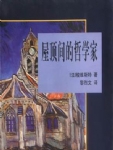No one succeeds in obtaining a prominent place in literature, or insurrounding himself with a faithful and steady circle of admirers drawnfrom the fickle masses of the public, unless he possesses originality,constant variety, and a distinct personality. It is quite possible togain for a moment a few readers by imitating some original feature inanother; but these soon vanish and the writer remains alone andforgotten. Others, again, without belonging to any distinct group ofauthors, having found their standard in themselves, moralists andeducators at the same time, have obtained undying recognition.
Of the latter class, though little known outside of France, is EmileSouvestre, who was born in Morlaix, April 15, 1806, and died at ParisJuly 5, 1854. He was the son of a civil engineer, was educated at thecollege of Pontivy, and intended to follow his fathers career byentering the Polytechnic School. His father, however, died in 1823, andSouvestre matriculated as a law-student at Rennes. But the young studentsoon devoted himself entirely to literature. His first essay, a tragedy,Le Siege de Missolonghi (1828), was a pronounced failure. Disheartenedand disgusted he left Paris and established himself first as a lawyer inMorlaix. Then he became proprietor of a newspaper, and was afterwardappointed a professor in Brest and in Mulhouse. In 1836 he contributedto the Revue des Deux Mondes some sketches of life in Brittany, whichobtained a brilliant success. Souvestre was soon made editor of La Revuede Paris, and in consequence early found a publisher for his first novel,LEchelle de Femmes, w hich, as was the case with his second work,Riche et Pauvre, met with a very favorable reception. His reputationwas now made, and between this period and his death he gave to Franceabout sixty volumes--tales, novels, essays, history, and drama.
A double purpose was always very conspicuous in his books: he aspired tothe role of a moralist and educator, and was likewise a most impressivepainter of the life, character, and morals of the inhabitants ofBrittany.
The most significant of his books are perhaps Les Derniers Bretons(1835-1837, 4 vols.), Pierre Landais (1843, 2 vols.), Le Foyer Breton(1844, 2 vols.), Un Philosophe sons les Toits, crowned by the Academy(1850), Confessions dun Ouvrier (1851), Recits et Souvenirs (1853),Souvenirs dun Vieillard (1854); also La Bretagne Pittoresque (1845),and, finally, Causeries Historiques et Litteraires (1854, 2 vols.). Hiscomedies deserve honorable mention: Henri Hamelin, LOncle Baptiste(1842), La Parisienne, Le Mousse, etc. In 1848, Souvestre was appointedprofessor of the newly created school of administration, mostly devotedto popular lectures. He held this post till 1853, lecturing partly inParis, partly in Switzerland.
His death, when comparatively young, left a distinct gap in the literaryworld. A life like his could not be extinguished without general sorrow.
Although he was unduly modest, and never aspired to the role of a beacon-light in literature, always seeking to remain in obscurity, the works ofEmile Souvestre must be placed in the first rank by their morality and bytheir instructive character. They will always command the entire respectand applause of mankind. And thus it happens that, like many others, hewas only fully appreciated after his death.
Even those of his confreres who did not seem to esteem him, when alive,suddenly found out that they had experienced a great loss in his demise.
They expressed it in emotional panegyrcs; contemporaneous literaturediscovered that virtue had flown from its bosom, and the French Academy,which had at its proper time crowned his Philosophe sons les Toits as awork contributing supremely to morals, kept his memory green by bestowingon his widow the "Prix Lambert," designed for the "families of authorswho by their integrity, and by the probity of their efforts have welldeserved this token from the Republique des Lettres."
JOSEPH BERTRAND

屋頂間的哲學家
梭维斯特
英文讀本
類別- 1970-01-01發表
-
204190
完全的
© www.hixbook.com
按“左鍵←”返回上一章節; 按“右鍵→”進入下一章節; 按“空格鍵”向下滾動。
